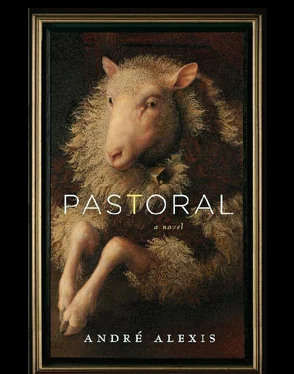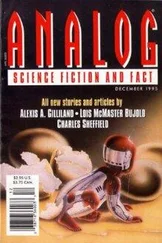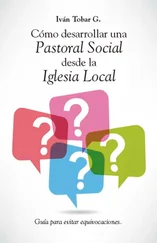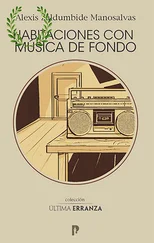— I see. That’s great, but I’ll have to ask the bishop. We don’t have … I don’t think we can afford …
— You don’t have to worry about the money, Father. I had an agreement with Father Fowler. I work for room and board and a few dollars now and then. If it’s okay with you, I’d like to carry on.
— I think I’ll still have to check with the bishop. I’m a pretty good cook myself and I like to keep things tidy, so I don’t know if I’ll need anyone seven days a week. But let me talk it over with the bishop. You can stay on till then.
— No, said Lowther. I don’t think that would be right. I won’t stay if you’ve got no use for me. You can call me if you need anything fixed or anything. I’ll be at my mother’s old house in Petrolia for a while. The number’s in the parish phone book, by the phone.
Behind them, Heath Lambert rose from his chair and came down from the porch.
— I told you, he said softly to Lowther.
Feeling as if he’d been unpleasant, Father Pennant relented
at once.
— No, no, he said. On second thought, I’m wrong. I’ll need someone for the first few weeks at least, until I get on my feet. If you don’t mind, I’ll still check with Bishop Henry, but it’d be great if you stayed on for a bit. Is that okay?
Heath and Lowther looked at him as if they were amused.
— Yes, said Lowther. Thank you, Father.
They shook hands. Or, rather, Lowther took the loaf of bread from Father Pennant and then they shook hands. Lowther then withdrew, speaking softly with Heath who, after a moment, walked off, raising his hand in a wave meant for the two behind him.
Lowther opened the door to the rectory. The house was filled with light. There was a window in every wall. There was very little furniture: a chair and chesterfield in the living room, table and chairs in the dining room, a kitchen with a white linoleum floor, a white stove, a white fridge, light green cupboards. Everything was spotless. By the looks of it, Lowther Williams was a tidy and thorough housekeeper. Upstairs was much the same. Father Pennant’s bedroom had a small closet, a severe, Shaker-style bed and an equally severe bedside table on which stood a round-bodied, white-hooded lamp. His bedroom window looked down onto the maple on the lawn and over at the yard of St. Mary’s school. Lowther’s room, at the back of the house, was as bright as Father Pennant’s and as chaste. But there was a music stand in the room, and on the stand a score stood open. Beside the stand, a cello lay on its side.
— I hope you don’t mind, Father, said Lowther. I’ve been playing since I was twelve.
— I don’t mind at all, said Father Pennant.
From the rectory, Father Pennant and Lowther went into the church. St. Mary’s was tall-ceilinged but relatively small. There was a nave, but it was barely deep enough to accommodate the font, a shallow but wide white porcelain bowl set on a solid rectangle of dark wood. There were two rows of ten pews, enough room for two or three hundred parishioners. The pews were of an unstained wood that had been lacquered and looked almost ochre. Though the lights in the church were off, its interior had the warm feeling of a gallery or museum. The church’s four stained-glass windows were its first oddity. The windows depicted moments in the lives of rather obscure saints. On the left, if one were facing the altar, were Abbo of Fleury, shown being killed by rioters, and Alexis of Rome, dressed as a beggar with a book. On the right were Zenobius of Florence, depicted helping a man rise from a coffin, and St. Zeno, shown laughing at the side of a lake, a fish in his hand.
— Why these particular saints? asked Father Pennant.
— Father Fowler’s predecessor wanted two A’s and two Z’s, answered Lowther. He thought it would remind people just how many saints there have been and maybe encourage them to be saintly themselves.
— Hmm, said Father Pennant.
He would have preferred more recognizable figures (St. Paul or St. Anthony, say), but the four obscure saints did not diminish his liking for the church. If anything, he was, when he thought about it, inclined to agree with his predecessor. There was something about these little-known saints that suggested the great range of sanctity.
The church’s second oddity was endearing. In the sacristy just off from the altar there were the usual things (vestments, wine, unconsecrated hosts) as well as a surprising number of candles. It was as if Father Fowler had feared a shortage of wax. There were dozens of candles — tall, short, narrow, thick, round, hexagonal — neatly stacked on the floor and in the cupboards and cabinets. The sacristy itself smelled of candle wax.
Father Pennant had assumed the church would be eccentric, something amusing to talk about when he visited the bishop or wrote to his fellow priests. Small-town churches were almost always eccentric. But here was a church in his own image: modest and straightforward, despite its oddities. It might be that his parishioners were ‘prickly,’ as he’d been warned, but his church and rectory were all he might have wished for.
The rest of Father Pennant’s first day in Barrow was uneventful. He unpacked his clothes and put them in the chest of drawers in his closet. He inspected the books Father Fowler had left on the bookshelves: novels, mostly. He ate the first meal Lowther prepared for him: trout with lemon and salt. The trout, perfectly cooked, lay headless on a bed of white rice beside a small handful of fried mushrooms. And for dessert, apple-ginger crumble.
To think he had almost dismissed Lowther before tasting the man’s cooking! But then, Lowther was not easy to gauge. He had appeared to be an old man, but he was, in fact, only sixty-two. He seemed to be rudderless, but he was self-assured and spiritually oriented. He treated his duties as caretaker with the utmost seriousness, but when Father Pennant asked him why he chose to be the parish’s caretaker, Lowther answered that there was no particular reason. It was the same answer he gave when asked about the cello: no particular reason. The cello had belonged to his grandfather. Asked by his mother if he would like to play the cello, he had answered yes, though he had felt neither compelled nor all that interested. Once he chose a thing, however, Lowther devoted himself to it completely. To Father Pennant, there seemed something almost superstitious about the strength of Lowther’s devotions.
— Do you believe in God? Father Pennant casually asked.
— Yes, very much, answered Lowther.
Which was good enough for Father Pennant who, reassured, spent the rest of the evening reading Memoirs of a Midget (a novel he chose for its unusual title) before falling asleep in his room, his sleep haunted by passages from Debussy’s Sonata for Cello .
At least part of the reason for Father Pennant’s enchantment with Barrow was that, without being aware of the extent of his distaste, Christopher Pennant had tired of big cities. Ottawa, his home, had become impersonal and oppressive to him. It made him lonely just thinking about all that tar and concrete. The only things he missed about Ottawa, now that it was behind him, were its many old churches and its river, which, at least in his imagination, had constantly promised elsewhere.
This longing for ‘elsewhere’ had been a long time coming. Christopher Pennant had always imagined that the city would be the place he’d be most needed. After seminary he had devoted himself to those whom the city had decimated: the poor, the addicted, the downtrodden. And he had felt his work was necessary. But that which had driven him to the priesthood in the first place, the spiritual presence of God, had grown more faint. It wasn’t that Ottawa itself was godless. It was, he imagined, that any place that covered the earth with tar and concrete was a place where His presence was bound to be muted. And Father Pennant had come to resent this mutedness. He’d begun to suffer from it. So, when the parish in Barrow was offered to him, Father Pennant, though he might have preferred a smaller city to the country, hoped that southern Ontario would be a way back to the feeling of closeness with God, a way back to the fount of his own spirituality.
Читать дальше












